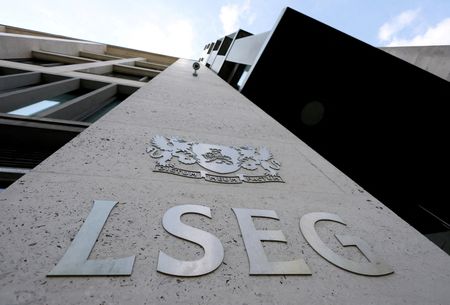BERLIN (Reuters) -Consumer sentiment in Germany is expected to deteriorate further heading into November, weighed down by sharply declining income expectations, a survey showed on Tuesday.
The consumer sentiment index, published by the GfK market research institute and the Nuremberg Institute for Market Decisions (NIM), fell to -24.1 points for November from a downwardly revised -22.5 points in October, missing analysts’ expectations for a modest improvement.
The drop was driven primarily by a decline in income expectations, which lost nearly 13 points to reach 2.3 points – the lowest level since March 2025. This erased the strong gains seen in the previous month.
“The ongoing geopolitical tensions, renewed inflation fears and growing concerns about job security are dampening hopes for a short-term recovery in consumer sentiment,” said Rolf Buerkl, consumer climate expert at NIM.
By contrast, economic expectations rose for the first time in four months, climbing 2.2 points to 0.8, while the willingness to buy increased slightly to -9.3 points. However, both indicators remain subdued, with high prices for food and energy continuing to weigh on purchasing behavior.
The willingness to save slipped to 15.8 points from 16.1 points a month earlier
NOV OCT OCT
2025 2025 2024
Consumer climate -24.1 -22.5 -21.0
Consumer climate components
OCT SEP OCT
2025 2025 2024
– economic expectations 0.8 -1.4 0.2
– income expectations 2.3 15.1 13.7
– willingness to buy -9.3 -11.6 -4.7
– willingness to save 15.8 16.1 7.2
The survey period was October 2–13, 2025.
An indicator reading above zero signals year-on-year growth in private consumption. A value below zero indicates a drop compared with the same period a year earlier.
According to GfK, a one-point change in the indicator corresponds to a year-on-year change of 0.1% in private consumption.
The “willingness to buy” indicator represents the balance between positive and negative responses to the question: “Do you think now is a good time to buy major items?”
The income expectations sub-index reflects expectations about the development of household finances in the coming 12 months.
The economic expectations index reflects respondents’ assessment of the general economic situation over the next 12 months.
($1 = 0.8618 euros)
(Reporting by Friederike HeineEditing by Ludwig Burger)








